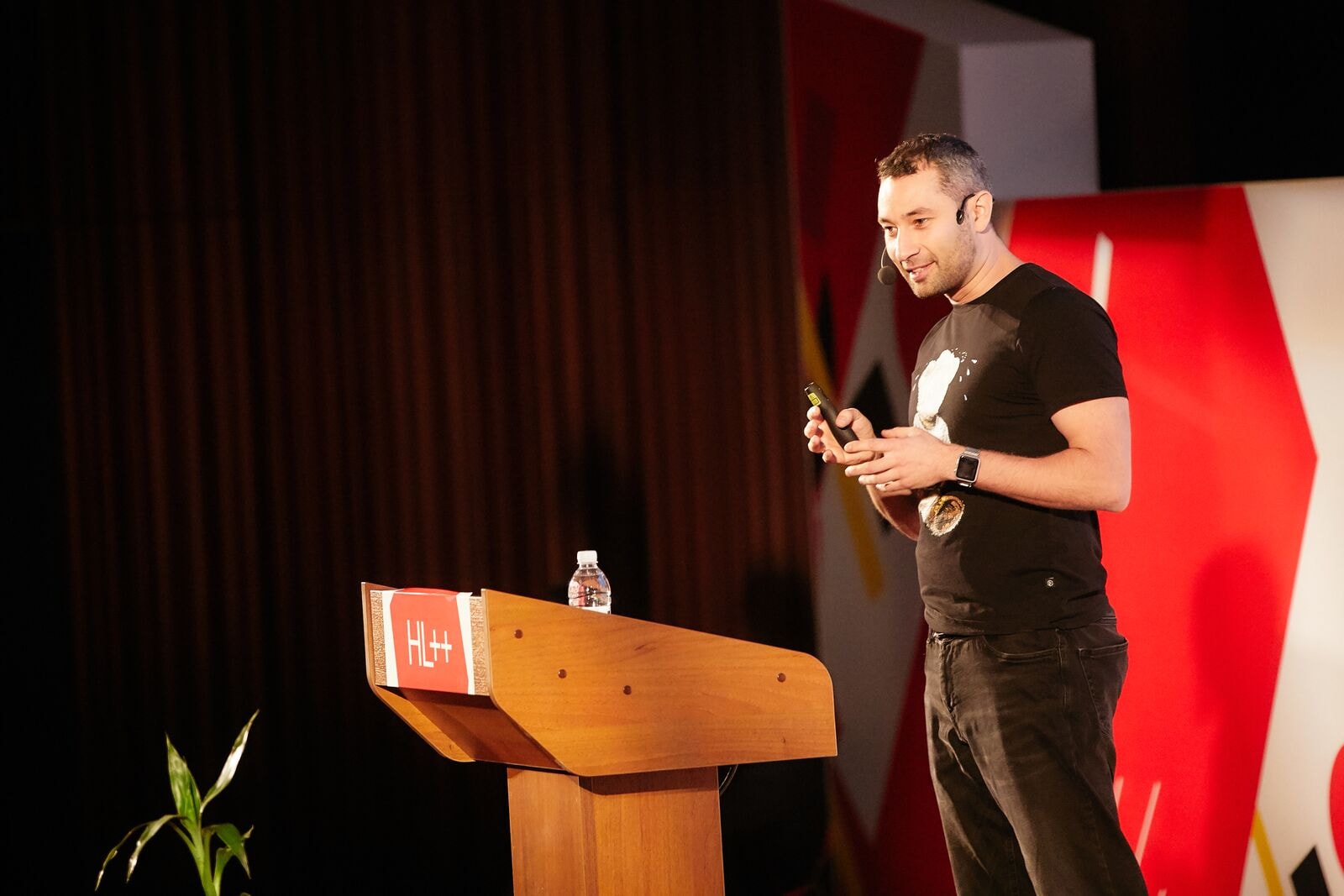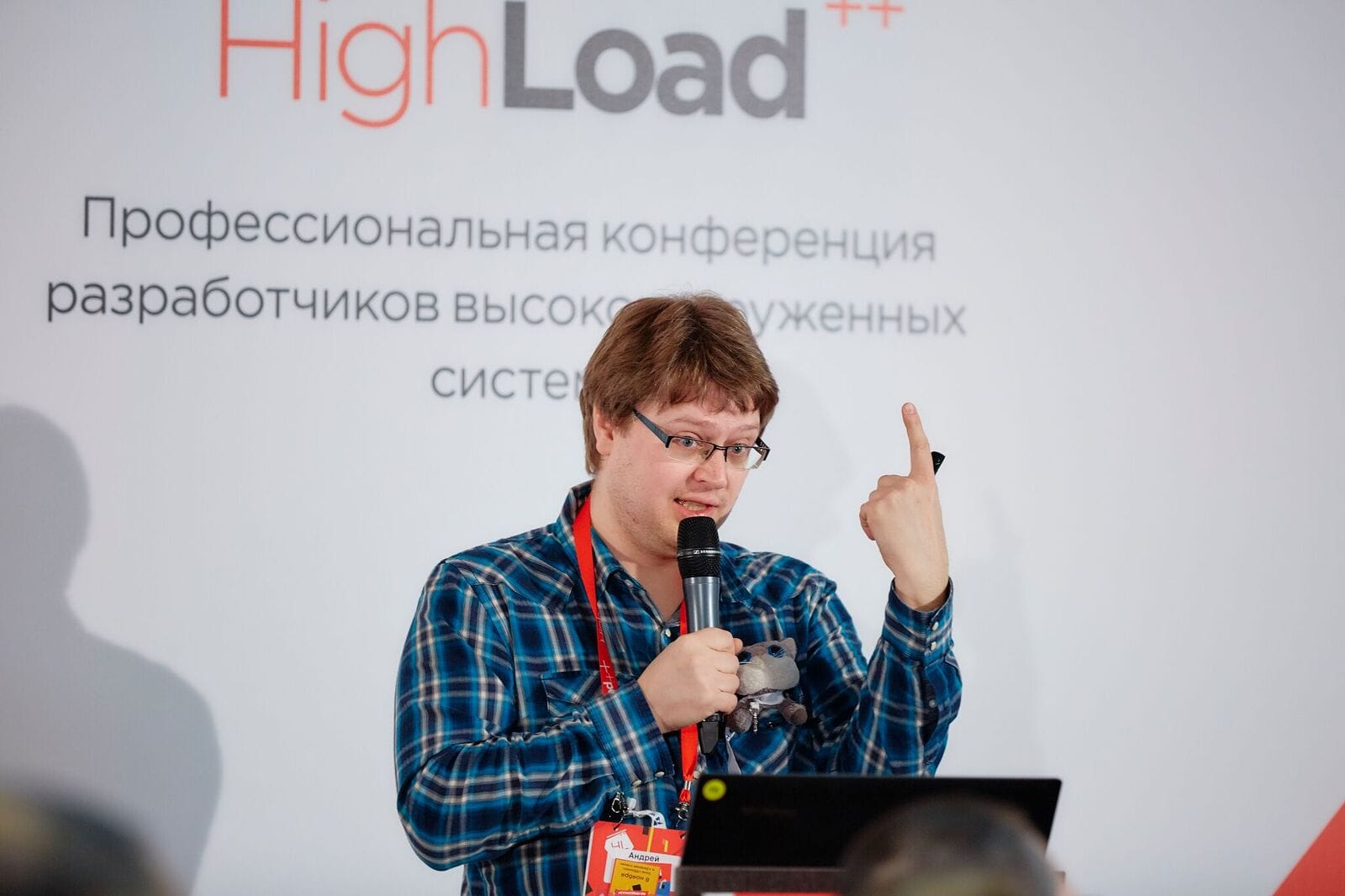The conference for developers of high-load services expands the geography - we are going to Novosibirsk! Go ahead with new knowledge, experience, ideas, acquaintances and impressions. And you know, looking at the
program is very similar that it will become a good tradition - in the summer to visit Siberia, under the cut review reports.
 Highload ++ Siberia,
Highload ++ Siberia, though fork of traditional Highload ++, but, as in the case of some well-known technologies, will go its own way and will develop its own traditions. Let's start with a fairly chamber event - just two streams, but all the reports are of excellent quality. Judge for yourself.
Monday, June 25
The first day of the conference
on June 25 will begin with the report of
Mikhail Kurmaev from Badoo, in which he
is going to raise a simple, at first glance, topic -
connection and execution of queries to the database or other services. However, the reliability of any high-loaded project directly depends on the interaction of all parts, and there is a possibility that something will go wrong. Let's talk about what it can be, and how such problems are solved in Badoo.
Meanwhile,
Pavel Pavelko in the Irkutsk hall (we are in Siberia)
will share an alternative approach to building the backend and the frontend for the implementation of the
concept of progressive pages .
Further in Krasnoyarsk there will be two reports from Avito.
Nikolay Golov will tell you how to ensure data integrity in the microservice architecture without distributed transactions and tight connectivity. Continuing the topic,
Konstantin Evteev will introduce students to sagas, in this case at PostgreSQL, in order to implement dependent data changes without compromising integrity.
A parallel track before lunch is occupied by the CFT and reports on how it was possible to
reduce the backend downtime when installing updates; how
to identify bottlenecks in the server part of the software and reduce the number of performance incidents by 10 times, about
migrations to Oracle and specific recommendations on how to work with them.
How VK inserts data into ClickHouse from tens of thousands of servers
While there will be a break in one hall,
Yuri Nasretdinov will explain in detail why VK needs ClickHouse, how much data is stored, what problems arise in operation and much more.
 And ClickHouse developer Alexey Milovidov
And ClickHouse developer Alexey Milovidov promises to
share "black magic" techniques for
low-level optimization and "white magic" - methods of using
data science methods to achieve performance gains on a wide range of CPU options.
Booking.com represented by
Viktor Bilyk plans to
tell about the place of machine learning in the development process and show concrete examples of the use of models.
Applied Mathematics High Load
Alexey Ragozin from Deutsche Bank agrees that in our field of high loads, as in many others, theory often disagrees with practice. Nevertheless, some of the
tools that science gives us deservedly can claim a place in the arsenal of a practical engineer, Alexey
invites us to introduce them.

At the end of the first day, nginx developer
Dmitry Volyntsev will introduce us to the njs project - a JavaScript interpreter in nginx. And
Ivan Bondarenko from 2GIS
will tell you from which opensource components to assemble
your own Speech-to-Text , where to get the data for training and how to understand whether it turned out well or so-so.
This is not all. Traditionally, in addition to reports to a large audience, there will be
meetings for chamber discussion of tasks in a narrow circle of specialists: from functional programming on JS and Haskell instead of Ruby on Rails, to questions about what use the DevRel engineer has.
June 26, Tuesday
A new day will prepare for the participants not less valuable information. For example, from the very first report there will be a difficult choice:
- Mikhail Prokopchuk plans to talk about how Avito monitors a self-hosted cloud based on Kubernetes, about the experience of operating Prometheus, its effective configuration and “cost” when monitoring large k8s clusters.
- Alexey Lesovsky from DataEgret will tell about the key points of PostgreSQL-statistics, about what graphs should be in monitoring for effective monitoring of the database , how to add them and how to interpret and much more.
Alexander Tobol is going to talk about the internal structure of the call service on OK with the ability to call between WEB, iOS, Droid. And also about AI, which collects statistics inside the call platform and automatically adjusts the network protocol parameters.
Dmitry Simonenko and
Dmitry Sarafannikov from Yandex will
present a new scalable connection puller for PostgreSQL, called Odyssey, and tell how it eliminated the architectural problems of PgBouncer and made a lot of new things.
The report by Anton Rusakov is dedicated to the story of how, for the first time, Badoo needed not only to accept money from users, but also to make payments to them. Then the development team had to
integrate the three major payment systems on their own, naturally, a lot of problems arose with each, which we learn from the report.
A system for collecting detailed statistics on the operation of CDN nodes, or why we stuffed a web server inside Flink.
Yevgeny Rossinsky (SRT ivi) will discuss one of the parties in the task of improving the quality of customer service when watching a video. In order to improve something, you must first measure and
find the quality metric. Eugene promises to
tell how the necessary information is collected and
what tools are used . There are vague suspicions that this is somehow related to Apache Flink.
 Dmitry Levanov
Dmitry Levanov from Yandex
will talk about how to squeeze maximum performance out of
Couchbase and not break anything with the example of one of the largest Couchbase installations in the world.
Dmitry Skokov will show how the
deployment of test benches is implemented in REG.RU, how we’ve got tired of adding new services to the stack weekly and managed to pass it
on to the developers .
Alexey Baitov will share the experience of 2GIS for the continuous delivery of microservice architecture, which is already in production. And he will also tell about how they changed the traditional approach of connectedness of microservices: removed unnecessary integrations within the team and got rid of the premature legacy of maintaining old versions of the API.
We learn to rank a little
And finally, the speaker, who, regardless of the topic, cannot be missed -
Andrey Aksenov (Sphinx). This time, under his leadership,
we will explain how to make your own formula for
ranking pages (search results), how to train your first simple ML-model, and how then you understand well.

Congress of IT Community Activists
As a supplement to Highload ++ Siberia, we are holding a
congress of IT community
activists , which was extremely successful at RHS ++. First of all, it is a platform for
meeting , communicating,
exchanging experience , discussing current problems and finding ways to solve them, which will bring together all the most caring and active representatives of the industry.
Networks around the conference
For those who still believe that Novosibirsk is very far away, it is possible to buy online streaming , or in a few months wait for video reports on our youtube channel on server programming, databases and highload.
It is convenient to ask questions to the organizers, speakers or other participants, to keep up with updates and news in the Telegram-chat (@HighLoadTalks) of the conference. Social networks ( https://www.facebook.com/HighLoadConference/ , https://vk.com/highloadconference ) for photos, news and otchetik, i.e. just for what they were made up for.